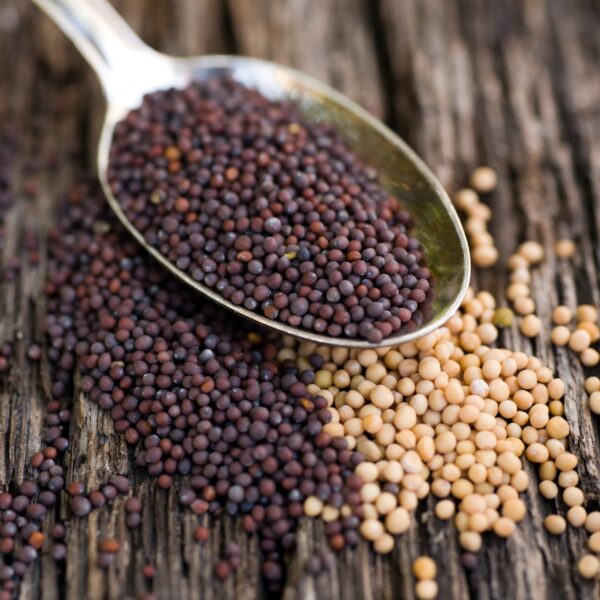Mustard Seeds 🌰 are small, round seeds from the mustard plant (Brassica species), commonly used as a spice, condiment base, and natural remedy. They come in yellow (white), brown, and black varieties, each with slightly different flavor and heat intensity.
🌿 Nutritional Profile (Per 1 tbsp / ~9g):
